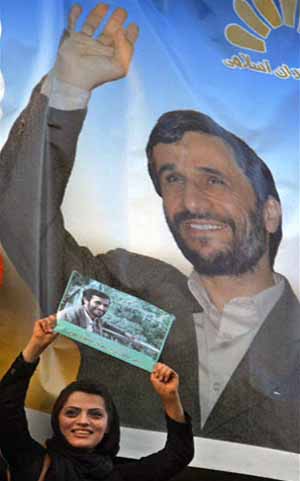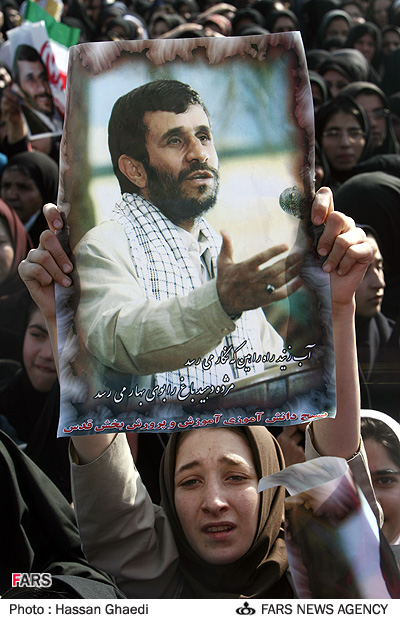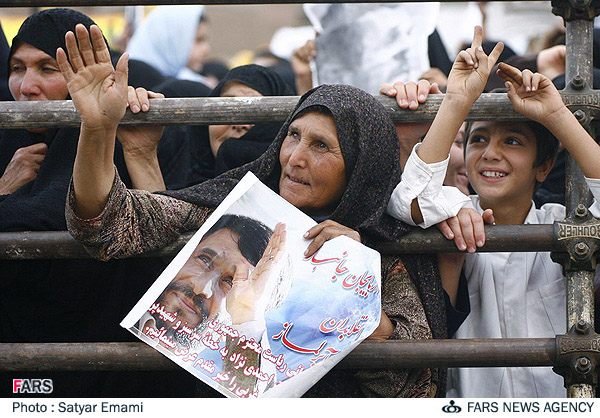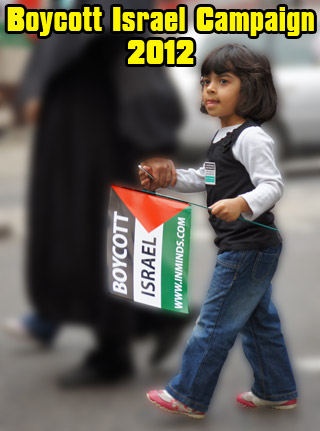
 Innovative Minds © 2014. All Rights Reserved. www.inminds.co.uk | |
|
[Iran] A humble beginning helped to form Iran's new hard manRobert Tait in Aradan, The Guardian  The early childhood home of young Mahmoud Saborjhian sits derelict and uninhabitable; the garden in which he once toddled is overgrown with weeds and used for roosting chickens. The well where his parents used to store the drinking water they collected from local channels is dry, long-since rendered obsolete by the economic progress that delivered running water to a parched region. It is a scene redolent of Iran's past. But for Iranians, these humble surroundings - in the town of Aradan, about 80 miles south-east of Tehran and directly on the path of the ancient Silk route - have acquired a contemporary significance. This is where the country's newly elected president, better known as Mahmoud hmadinejad,was born, the fourth of seven children. The Saborjhian family rented the two-storey house before leaving their impoverished environment in the late 1950s in search of prosperity in Tehran. Mr Ahmadinejad was little more than one year old when they went to the city. It was a move that coincided with changing the family name, a step taken for a mixture of religious and economic reasons, relatives say. The name change provides an insight into the devoutly Islamic working-class roots of Mr Ahmadinejad's brand of populist politics. The name Saborjhian derives from thread painter - sabor in Farsi -a once common and humble occupation in the carpet industry in Semnan province, where Aradan is situated. Ahmad, by contrast, is a name also used for the prophet Muhammad and means virtuous; nejad means race in Farsi, so Ahmadinejad can mean Muhammad's race or virtuous race. "Moving from a village to big cities was so common and widespread at that time that perhaps people, not wanting to show their roots, would change their names," said Mehdi Shahhosseini, 31, son of one of Mr Ahmadinejad's cousins, still living in Aradan. "Some people were more religious and chose names to reflect that.  "If the concealment of the family's origins has diminished local pride in Mr Ahmadinejad, it does not show. This week, residents of Aradan - a town of 7,000 people sitting in the shadow of the Alborz mountains - had a a street festival to celebrate his landslide victory in last week's presidential election. It was an occasion born of surprise as much as joy. "We never expected him to be president," Mr Shahhosseini said. "We could see he was mproving and making progress but we thought he would stay in his area of expertise [the Islamist mayor of Tehran has a PhD in traffic management and engineering]." About 98% of local voters are believed to have backed Mr Ahmadinejad in the run-off contest against Akbar Hashemi Rafsanjani, a former president. Mr Ahmadinejad, 49 - who will takeoffice next month - still makes visits his birthplace to pay respect to the memory of a late uncle buried in the local cemetery. He keeps in close contact with cousins, who visit him in Tehran. Relatives say his professed concern for the poor and Iran's growing wealth gap stems from his familiarity with the local area, which has a fragile economy based on sheep and cattle farming. "He has tasted poverty himself. He and his family have had a lot of problems," said Mehran Mohseni, 32, the son of another cousin. "The family was not poor but they were living very simple lives. He had to struggle to get his BSc and his PhD. His life is not luxurious at all. There are no sofas in his house in Tehran, only cushions and rugs." The president-elect's solidarity with the worse off is also believed to have been influenced by his father, Ahmad, who became a blacksmith in Tehran after running a grocery store and then a barber's shop in Aradan. Mr Ahmadinejad, it is said, refuses to eat at the table of any host who does not pay zakat, the portion of their annual income which Muslims are required to give to the poor. Relatives talk approvingly of how Mr Ahmadinejad's father, who now works in a revolutionary guards' shop, sold his Tehran house for £37,000 and bought a smaller home for half the price, giving the proceeds to a poor people's charity. Talking with adulation bordering on reverence, relatives try to depict the president-elect - contrary to his image as a dour Islamist - as a man of sharp humour. His favourite pastimes, they say, are football and mountaineering, a recreation favoured by Iran's rugged terrain.  But hand in hand with the attempts at smoothing the hard edges go expressions of pride in his revolutionary credentials. That background is now under fierce scrutiny from the Bush administration after several former US diplomats held captive in the 1979-81 Tehran embassy takeover alleged that Mr Ahmadinejad was a ringleader. Aides to Mr Ahmadinejad, as well as other hostage-takers, deny the charges. Nevertheless, it is clear from family accounts that he was a committed activist. Before the 1979 revolution he visited Lebanon during the country's civil war and is said to have been active with Shia groups there. During the reign of the last shah, he kept a printing press at home, which he used to print leaflets denouncing the monarch. On the eve of the revolution his activities forced the entire Ahmadinejad family to flee Tehran and go into hiding in the north-eastern province of Golestan to avoid arrest by the savak, the shah's secret police. Mr Ahmadinejad's strong religious beliefs surfaced early. "He had an interest in and talent for the Qur'an as a very small child," said a cousin, Maasoumeh Saborjhian, 60, to whom he remains close." He liked to go to classes but they threw him out because he was too young. He was only 10 or 11. But he would insist, saying, no, no, I know how to read the Qur'an." His mother, addressed by friends and relatives as Seiyed Khanom (literally, Madam Descendent of the Prophet),dresses in an all-embracing black chador and insists on the rigid separation of the sexes. "She is very religious," Mrs Saborjhian said. "She will never sit beside a man who is not a close relative. If she is hosting any ceremonies, she separates men and women with a curtain." It is an aspect of Mr Ahmadinejad's background that will ring alarm bells for Iran's mostly affluent secular population. This is the group who supported the modest social liberalisation that unfolded during the reformist presidency of Mohammed Khatami, now about to leave office. They fear a return to the early days of the revolution, which Mr Ahmadinejad admires, when Islamist dresscodes were stringently enforced and mingling of the sexes strictly forbidden. The president-elect's aides say that is not his intention. It certainly would not meet with the approval of some of his relatives. "Poverty is the real problem," said Mr Mohseni, the son of Mrs Saborjhian, and Mr Ahmadinejad's campaign manager in Aradan. "I don't think he will stop freedom. During Khatami's period, liberalisation was OK. It was good." Source: http://www.guardian.co.uk/iran/story/0,12858,1519520,00.html Related ArticlesAlso Of InterestPage URL: http://www.inminds.co.uk/article.php?id=43
|
|
Support Us
If you agree with our work then please support us.Campaigns INMINDS Facebook Live Feed Latest Video's
INMINDS Twitter Feed Tweets by @InmindsComFeatured Video's
You need Flash player 8+ and JavaScript enabled to view this video.
[all videos (over 200)..] Featured MP3 Podcast  "The United States is 4.6% of the worlds people but still controls 50% of the worlds wealth and has a military that spends more than every other country in the world combined. I see this moment, as a moment that is very dangerous.. which is to say that the United States is a declining world economic power, similarly a declining political power, but what isn't declining is the military power. As you know from the 20th century that's a dangerous combination - a declining economic and political power but an overwhelmingly dominant military power. I think the national security state that we've seen organised since 9-11 in an unbelievably rapid way, which owes in no small part to Israel I must say, is a particular [example]." A founding member of the Weather Underground Meeting with members of 'Smash EDO' in Tel Aviv, April 2010 [88min / 40Mb] [all podcasts..] Newsletter Feedback |
 |
 |













































